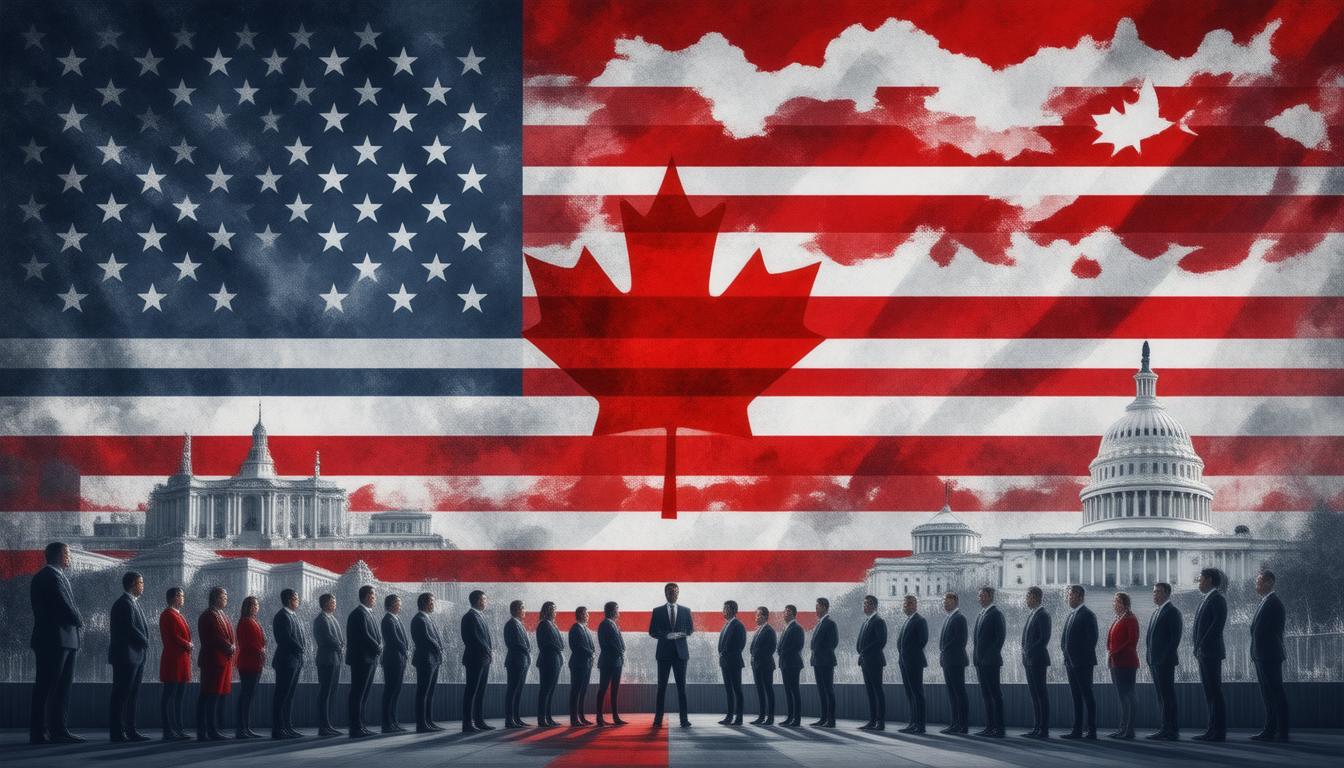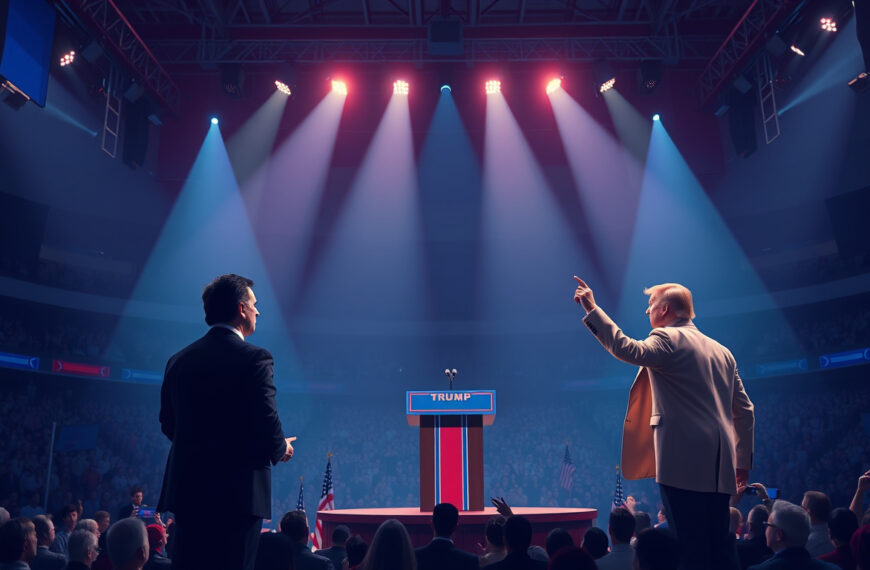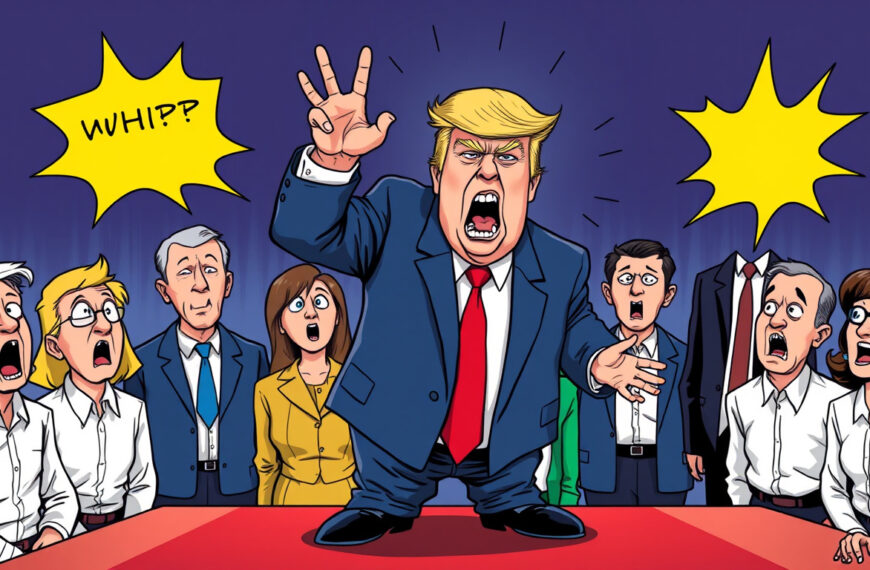The concept of Canada joining the United States as the 51st state might sound like a political fantasy or an ambitious proposition pitched by former President Donald Trump. His expansive vision for the nation has often veered into realms of grandiosity, leading many to raise serious questions about the feasibility of such an idea. To truly understand the implications of Canada becoming a part of the U.S., we need to look beyond the whims of politicians and take into account the more complex social, political, and cultural dynamics at play.
A Brief History of American Territorial Ambitions
Since his inauguration, Donald Trump has voiced a variety of territorial ambitions, including the desire to claim the Gaza Strip, the Panama Canal, and Greenland. Each of these proposals has garnered significant criticism, primarily for their impracticality and insensitivity to the people involved. The idea of Canada joining the U.S. fits into this larger narrative, echoing historical American expansionist sentiments, yet it brings its own distinct challenges.
A Dream or a Political Nightmare?
The suggestion for Canada to become a U.S. state raises immediate logistical questions regarding representation. Canada, with a population of about 41 million, is more populous than several states combined. However, due to the Reapportionment Act of 1929, which limits the House of Representatives to 435 members, adding Canada to the U.S. would necessitate a drastic redistribution of congressional seats. Calculating the numbers, Canada could effectively gain around 47 seats, impacting representation for existing states—an outcome that would undoubtedly lead to political backlash.
Moreover, the Senate presents an even more complicated scenario. Currently, Trump proposes that Canada could unequivocally join as a single state, granting it two senators. However, with Canada’s diverse provinces and territories, a more realistic scenario would see each province functioning as a state, resulting potentially in 10 additional senators. This shift could alter the political landscape dramatically, raising concerns about party power dynamics. For Republicans who fear losing influence to a potentially liberal-leaning Canada, the ramifications could complicate party strategies across the board.
The Political Reality: Power Distribution and Opposition
Republican opposition to statehood proposals for places like Puerto Rico and Washington D.C. stems from fears that new states would tilt political power toward Democrats. The notion of Canada’s inclusion—along with possible liberal voting patterns—could intensify these anxieties. Historical data indicates that in Canada, conservative parties have averaged around 35% of the popular vote, while left-leaning parties collectively account for approximately 63% in elections. This suggests that Canadian political alignment might not favor the Republican ideology that has often dominated U.S. politics.
Prime Minister Justin Trudeau has firmly stated that there is "not a snowball’s chance in hell" of Canada joining the U.S., reinforcing signals from Canadian society that they value their independence and identity. The multifaceted political systems of both countries, combined with strong cultural identities, further complicate any simplistic visions of unity.
Cultural Implications: More Than Just Politics
The social implications of such a union cannot be overlooked. Canadians take pride in their distinct health care system, social policies, and cultural values. Joining the U.S. could mean sacrificing their social safety nets and adopting policies that may differ drastically from their current practices. Thus, discussions around national identity must also take center stage.
Moreover, any significant alteration to the status quo would require far more than legislative approval; it necessitates a genuine connection between the peoples of both nations. Fostering cooperative dialogue, understanding cultural sensitivities, and evaluating shared values would be crucial to the success of any potential union.
Conclusion
While Donald Trump’s vision of Canada joining the U.S. might seem like an appealing narrative to some, the discussion extends far beyond mere political ambition. It invites scrutiny into representation, party power dynamics, and cultural identity, requiring the involvement of not just politicians but a broader spectrum of society. As conversations around national identity and governance continue, the underlying truths about what it means to be part of a larger union could reshape our understanding of transnational relationships in North America. The realities and aspirations of both Canadians and Americans must be considered, ensuring any potential future pathways are respectful, equitable, and jointly decided.
Ready to get in the game and start making money on Pump.fun? DogWif Tools is the #1 memecoin sniper tool for becoming a Pump.fun millionaire. Get DogWif Tools today and become a memecoin dev!








